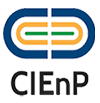Golden Rice, the staple food genetically designed to contain beta carotene, a precursor to vitamin A, has been judged safe to eat by the US Food and Drug Administration (FDA). A letter from the FDA on May 24 stated that the agency had no further questions about the safety of the rice, originally developed to provide a rich source of vitamin A for children whose diets are deficient in this nutrient… Para acessar a publicação na íntegra clique aqui Fonte: NATURE BIOTECHNOLOGY VOLUME 36 NUMBER 7 JULY 2018…
An FDA perspective on the assessment of proposed biosimilar therapeutic proteins in rheumatology
Nikolay P. Nikolov and Marjorie A. Shapiro Abstract | Biologic products have revolutionized the management of many rheumatic diseases, but access to these products might be limited by their relatively high costs. The US Biologics Price Competition and Innovation Act of 2009, which is contained within the Patient Protection and Affordable Care Act, established an abbreviated pathway for licensure by the FDA of biologic products that are demonstrated to be biosimilar to or interchangeable with FDA-licensed biologic products, termed reference products. This law allows for…
Statement by FDA Commissioner Scott Gottlieb, M.D., on the importance of conducting proper research to prove safe and effective medical uses for the active chemicals in marijuana and its components
FDA Statement For Immediate Release Statement Over the past decade, we’ve seen a growing interest in the development of therapies derived from marijuana and its components. Proponents of “medical marijuana” advertised its uses for a wide number of medical conditions, such as cancer, multiple sclerosis, post-traumatic stress disorder and anxiety – just to name a few of the touted conditions. The FDA has been supportive of research in this area for many years. But marijuana is a Schedule I compound…
BACE failures lower AD expectations, again
There’s more bad news for β-secretase 1 (BACE1) inhibitors, a class of Alzheimer disease (AD) drug designed to reduce amyloid plaques by controlling amyloid processing upstream of anti-amyloid antibodies and of γ-secretase inhibitors. Just weeks after Merck & Co. published the results of its failed pivotal trial of verubecestat in mild-to-moderate AD, Johnson & Johnson and partner Shionogi have terminated late-stage development of atabecestat in asymptomatic individuals owing to safety concerns… Para acessar a publicação na íntegra clique aqui Fonte: NATURE REVIEWS | DRUG DISCOVERY VOLUME…
Indian biotech sector readies for liftoff
The Indian government has unveiled bold plans to rekindle its homegrown biotech industry, allocating Rs. 24 billion ($372 million) for 2018–2019, the Department of Biotechnology (DBT) announced on February 1. The new spending will support 300 to 500 startups a year—aiming to reach 2,000 by 2020—two bioclusters, 15 bioincubators and three regional entrepreneurship centers. The earmarked funds will also help support 150 technology transfer offices and 20 ‘Bioconnect’ offices dedicated to providing access to incubators, mentors, investors, know-how and connections with the international market… Para acessar a publicação na íntegra clique aqui Fonte: 380 VOLUME…
Drug pipeline: 1Q18
Approvals were down last quarter. Vertex (Cambridge, MA, USA) got a green light for its small-molecule combination to combat cystic fibrosis; Theratechnologies (Montreal, Quebec, Canada) and Sun Pharmaceuticals (Mumbai, India) received registrations for monoclonal antibodies (mAbs) to treat HIV and psoriasis, respectively… Para acessar a publicação na íntegra clique aqui Fonte: 386 VOLUME 36 NUMBER 5 MAY 2018 NATURE BIOTECHNOLOGY…
FDA new drug approvals in Q1 2018
The first quarter of the year saw two notable FDA approvals for HIV therapies. In early February, Gilead Sciences gained approval for its triple combination product Biktarvy, which brings together the novel HIV-1 integrase inhibitor bictegravir with the established dual nucleoside reverse transcriptase inhibitor (NRTI) backbone of emtricitabine and tenofovir alafenamide in a once-daily, oral tablet formulation. Biktarvy is set to be one of 2018’s biggest launches and Gilead’s largest growth driver, with forecast sales of more than US$5 billion in 2022… Para acessar a publicação na íntegra clique aqui Fonte: NATURE REVIEWS…
New drug for multidrugresistant HIV
The US Food and Drug Administration has approved a new drug to treat patients with multidrug-resistant HIV-1, the first therapy in more than a decade with a new mechanism of action. Developed by Taipei, Taiwan–based TaiMed Biologics, Trogarzo (ibalizumab-uiyk) is a humanized monoclonal antibody that binds… Para acessar a publicação na íntegra clique aqui Fonte: NATURE BIOTECHNOLOGY VOLUME 36 NUMBER 4 APRIL 2018 291…
FDA approves strokedetecting AI software
The US Food and Drug Administration (FDA) has cleared a deep-learning algorithm that analyzes images to detect potential strokes. The computer-aided image software system from San Francisco-based AI-health firm Viz.ai, identifies suspected large vessel… Para acessar a publicação na íntegra clique aqui Fonte: VOLUME 36 NUMBER 4 APRIL 2018 NATURE BIOTECHNOLOGY …
Nature Biotechnology’s academic spinouts of 2017
2017 was a good year for biotechs looking to raise money. Venture capital investment in biotech companies reached the stratospheric levels of $16 billion. And it was not only seasoned companies that benefitted—the largesse extended to companies raising their first rounds, which accounted for nearly a third of risk capital entering the sector. Para acessar a publicação na íntegra clique aqui Fonte: NATURE BIOTECHNOLOGY VOLUME 36 NUMBER 4 APRIL 2018…
